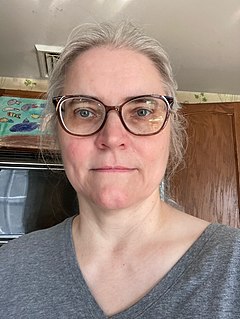A Quote by Nikolai Berdyaev
I never remain passive in the process of reading: while I read I am engaged in a constant creative activity, which leads me to remember not so much the actual matter of the book as the thoughts evoked in my mind by it, directly or indirectly.
Related Quotes
Actual knowledge is identical with its object: in the individual, potential knowledge is in time prior to actual knowledge, but in the universe as a whole it is not prior even in time. Mind is not at one time knowing and at another not. When mind is set free from its present conditions it appears as just what it is and nothing more: this alone is immortal and eternal (we do not, however, remember its former activity because, while mind in this sense is impassible, mind as passive is destructible), and without it nothing thinks.
I read continually and don't understand writers who say they don't read while working on a book. For a start, a book takes me about two years to write, so there's no way I am depriving myself of reading during that time. Another thing is that reading other writers is continually inspiring - reading great writers reminds you how hard you have to work.
There is only one way to read, which is to browse in libraries and bookshops, picking up books that attract you, reading only those, dropping them when they bore you, skipping the parts that drag-and never, never reading anything because you feel you ought, or because it is part of a trend or a movement. Remember that the book which bores you when you are twenty or thirty will open doors for you when you are forty or fifty-and vise versa. Don’t read a book out of its right time for you.
I doubt if I shall ever have time to read the book again -- there are too many new ones coming out all the time which I want to read. Yet an old book has something for me which no new book can ever have -- for at every reading the memories and atmosphere of other readings come back and I am reading old years as well as an old book.
My book review site and first blog, which I started in 2003. I started it because I was lamenting that while I read so much, I could hardly remember any of it. People would ask me what good books I'd read recently, or what I thought of a particular book, and my mind would go blank. At the same time, I'd just heard of blogging and found the idea interesting and thought I'd give it a try.
In the sort of screen dappled with different states of mind which my consciousness would simultaneously unfold while I read, and which ranged from the aspirations hidden deepest within me to the completely exterior vision of the horizon which I had, at the bottom of the garden, before my eyes, what was first in me, innermost, the constantly moving handle that controlled the rest, was my belief in the philosophical richness and beauty of the book I was reading, and my desire to appropriate them for myself, whatever that book might be.
I feel lucky that I read so many books as a kid because I know that no matter how much I appreciate a book now, and I can love a book very much, it's never going to be that childhood passion for a book. There's some element, something special about the way they're reading books and experiencing books that's finite.
I grew up in a completely bookless household. It was my father's boast that he had never read a book from end to end. I don't remember any of his ladies being bookish. So I was entirely dependent on my schoolteachers for my early reading with the exception of The Wind in the Willows, which a stepmother read to me when I was in hospital.
I grew up in a completely bookless household. It was my father's boast that he had never read a book from end to end. I don't remember any of his ladies being bookish. So I was entirely dependent on my schoolteachers for my early reading with the exception of 'The Wind in the Willows,' which a stepmother read to me when I was in hospital.
I am not very sceptical, — a frame of mind which I believe to be injurious to the progress of science. A good deal of scepticism in a scientific man is advisable to avoid much loss of time, but I have met with not a few men, who, I feel sure, have often thus been deterred from experiment or observations, which would have proved directly or indirectly serviceable .
Productiveness is your acceptance of morality, your recognition of the fact that you choose to live-that productive work is the process by which man's consciousness controls his existence, a constant process of acquiring knowledge and shaping matter to fit one's purpose, of translating an idea into physical form, of remaking the earth in the image of one's values-that all work is creative work if done by a thinking mind.







































